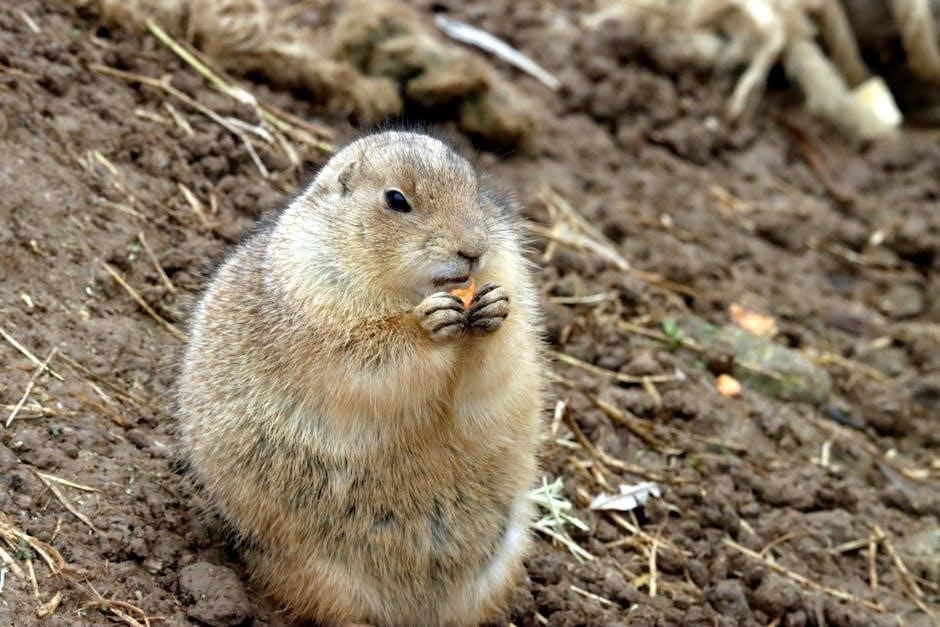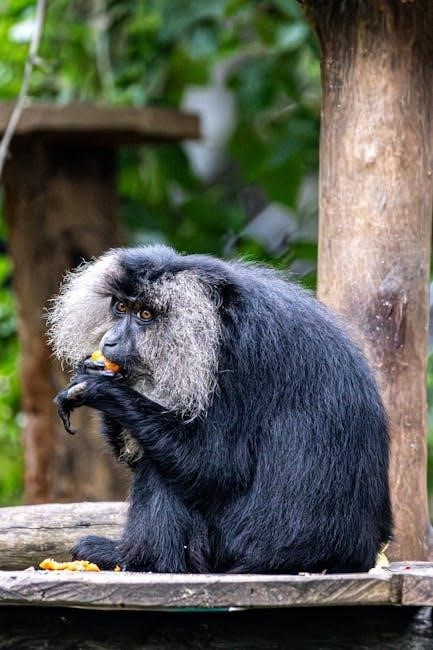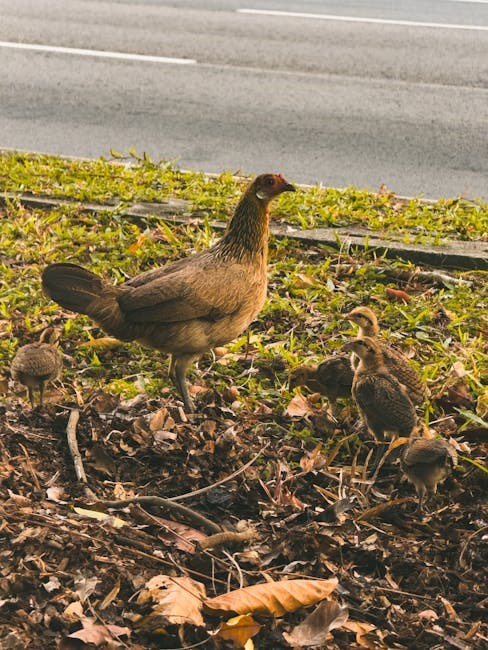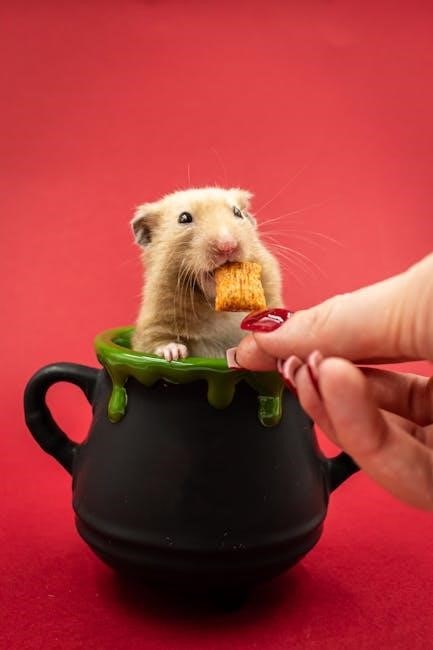Welcome to the Miniature Dachshund Feeding Guide, your comprehensive resource for ensuring optimal nutrition, health, and happiness for your beloved pet. This guide covers essential topics from nutritional needs to feeding schedules, helping you make informed decisions for a thriving Miniature Dachshund.
Understanding the Importance of Proper Nutrition for Miniature Dachshunds
Proper nutrition is vital for Miniature Dachshunds to maintain their health, energy, and overall well-being. Their unique breed characteristics, such as a long, narrow body and potential for weight gain, make balanced meals essential. A well-planned diet helps prevent obesity, a common issue in this breed, and supports strong bones and muscles. Additionally, proper nutrition aids in digestion, reducing the risk of gastrointestinal problems. A nutrient-rich diet also promotes a shiny coat, healthy skin, and robust immune function. Feeding your Miniature Dachshund the right foods ensures they thrive and live a happy, active life, free from preventable health complications.
Overview of the Miniature Dachshund Breed and Its Dietary Needs
Miniature Dachshunds are a small, energetic breed with a big personality. Originating as hunting dogs, they require a diet that supports their active lifestyle and specific health needs. Their compact size means they burn calories efficiently, but they are prone to obesity if overfed. A balanced diet rich in protein, moderate in fat, and low in carbohydrates is ideal. They also benefit from fiber for digestion and essential vitamins for overall health. Avoiding excessive treats and monitoring portion sizes are crucial to maintaining their weight and preventing health issues like back problems and joint strain, common in this breed.

Nutritional Requirements for Miniature Dachshunds
Miniature Dachshunds require a balanced diet rich in high-quality protein, moderate fat, and limited carbohydrates. Essential nutrients include fiber, vitamins, and minerals to support energy, digestion, and overall health.
Essential Nutrients for Miniature Dachshunds: Proteins, Fats, Carbohydrates, and Vitamins
A balanced diet for Miniature Dachshunds must include high-quality protein sources like chicken or fish to support muscle health. Fats, such as omega-3 fatty acids, are crucial for energy and skin health. Carbohydrates provide fiber, aiding digestion, while vitamins A, D, and E support immune function and coat health. Minerals like calcium and phosphorus are vital for strong bones. Avoid over-supplementation, as it can lead to health issues. Always consult a veterinarian to ensure your Miniature Dachshund’s diet meets their specific needs for optimal growth and longevity.
The Role of Fiber in a Miniature Dachshund’s Diet
Fiber plays a crucial role in maintaining a Miniature Dachshund’s digestive health by promoting regular bowel movements and preventing issues like constipation or diarrhea. It also helps manage weight by increasing satiety, reducing overeating. Sources like whole grains, vegetables, and certain fruits provide essential fiber. However, excessive fiber can lead to nutritional imbalances, so moderation is key. A balanced diet with appropriate fiber content supports overall gut health and energy levels, ensuring your Miniature Dachshund stays active and thriving. Always consult a veterinarian to determine the ideal fiber intake for your pet based on their age, size, and health conditions.
Importance of Moisture Content in Their Food
Maintaining adequate moisture in a Miniature Dachshund’s diet is vital for their overall health. Moisture-rich foods, such as wet dog food, help support digestion, prevent dehydration, and reduce the risk of urinary issues. Proper hydration aids in kidney function and maintains healthy skin and coat. Feeding high-moisture foods can also help manage weight, as they often feel more satisfying, reducing overeating. Additionally, moisture helps prevent digestive discomfort and promotes regular bowel movements. Ensuring your Miniature Dachshund has access to moisture-rich foods, alongside fresh water, is essential for their well-being and long-term health. Always choose high-quality options tailored to their specific needs.
Best Food Types for Miniature Dachshunds
High-quality commercial dog foods, including kibble and wet options, are ideal for Miniature Dachshunds, providing balanced nutrition tailored to their specific needs and promoting optimal health.
High-Quality Commercial Dog Foods: Kibble and Wet Food
High-quality commercial dog foods are a convenient and nutritionally balanced option for Miniature Dachshunds. Kibble provides essential vitamins and minerals, supporting dental health through crunchy texture. Wet food offers higher moisture content, aiding digestion and hydration. Both options are formulated to meet specific life stages and dietary needs. Look for products with whole meats as the first ingredient and avoid fillers. Consult your veterinarian to choose the best option for your dog’s age, weight, and health conditions. A combination of kibble and wet food can provide variety and ensure your Miniature Dachshund receives a well-rounded diet.
Raw Food Diets for Miniature Dachshunds: Pros and Cons
Raw food diets for Miniature Dachshunds offer potential benefits, such as higher protein content and reduced allergens, but also carry risks. Pros include improved digestion, shinier coats, and natural eating habits. However, raw diets can lack essential nutrients if not properly balanced. They also pose risks of bacterial contamination, like Salmonella, and may contain harmful parasites. Additionally, raw diets can be time-consuming to prepare and may be more expensive. It’s crucial to consult a veterinarian before transitioning to ensure the diet is nutritionally complete and safe. While some owners swear by raw feeding, others prefer the convenience and safety of commercial foods.
Homemade Diets: How to Prepare Balanced Meals
Preparing homemade meals for Miniature Dachshunds allows for customization to meet their specific needs, but it requires careful planning. A balanced diet must include high-quality protein sources like lean meats, fish, or eggs, along with whole grains, vegetables, and essential vitamins. Consulting a veterinarian or canine nutritionist is crucial to ensure meals are nutritionally complete. Ingredients should be fresh and free from toxins. Avoiding fillers and allergens can help prevent sensitivities. Portion control is key, and meals should be tailored to life stages—puppy, adult, or senior. While homemade diets offer benefits, improper preparation can lead to deficiencies, so precision is vital for optimal health.

Feeding Schedule for Miniature Dachshunds

A consistent feeding schedule is vital for Miniature Dachshunds. Puppies may need 3-4 meals daily, while adults typically thrive on 2 balanced meals. Seniors may require fewer, tailored portions. Always consult a vet to ensure the schedule meets your dog’s specific needs and promotes optimal health.
Feeding Puppies: Frequency and Portion Sizes
Miniature Dachshund puppies require frequent, nutrient-rich meals to support rapid growth. Feed 3-4 times daily until 6 months old, then gradually transition to twice a day. Portion sizes should be tailored to the puppy’s weight and activity level, ensuring they receive adequate calories without overfeeding. High-quality puppy food with balanced protein, fats, and vitamins is essential. Monitor growth closely and adjust portions to prevent obesity. Consult a veterinarian to determine the ideal feeding schedule and portion sizes for your puppy, as needs may vary based on size and energy levels. Proper nutrition during this stage sets the foundation for lifelong health.
Feeding Adult Miniature Dachshunds: Maintaining a Healthy Weight
Adult Miniature Dachshunds typically thrive on two meals per day, with portion sizes tailored to their weight, age, and activity level. Aim for a balanced diet rich in protein, moderate fats, and limited carbohydrates to prevent obesity. Avoid overfeeding, as this breed is prone to weight gain. Monitor food intake and adjust portions based on regular weight checks. Incorporate exercise, such as daily walks, to maintain a healthy physique. Avoid table scraps and focus on high-quality, nutrient-dense foods. Consult your veterinarian to determine the ideal calorie intake and ensure your adult Miniature Dachshund remains at a healthy weight throughout their life.
Feeding Senior Miniature Dachshunds: Adjusting for Age-Related Needs
As Miniature Dachshunds age, their dietary needs evolve. Senior dogs, typically over 7-10 years, may require fewer calories but more joint support; Transition to senior-specific food, which often includes glucosamine and chondroitin for joint health. Digestive issues may arise, so opt for easily digestible formulas. Monitor weight to prevent obesity, as seniors are less active. Consult your veterinarian to tailor meals to your dog’s health conditions; Adjust portion sizes based on activity levels and ensure fresh water is always available. Regular check-ups can help fine-tune their diet, ensuring a comfortable and healthy golden age for your Miniature Dachshund.

Portion Control and Avoiding Overfeeding
Portion control is crucial to prevent obesity in Miniature Dachshunds. Monitor food intake, ensure balanced meals, and consult a vet for personalized feeding advice to maintain a healthy weight.
Understanding the Risks of Obesity in Miniature Dachshunds
Obesity is a significant health risk for Miniature Dachshunds, leading to issues like joint problems, heart disease, and breathing difficulties. Their long, low-to-the-ground bodies are prone to weight-related strain, which can exacerbate back injuries, a common breed-specific issue. Excess weight also increases the likelihood of developing diabetes and reduces overall mobility. Regular monitoring of food portions and ensuring a balanced diet are essential to prevent obesity. Consult a veterinarian to assess your dog’s weight and adjust feeding plans accordingly to maintain a healthy, active lifestyle and prevent these serious health complications.
How to Measure and Control Food Portions
Accurate portion control is crucial for maintaining your Miniature Dachshund’s health. Use a measuring cup or digital scale to ensure precise amounts, as overestimating can lead to overfeeding. Divide daily rations into 2-3 meals to prevent gobbling and indigestion. Adjust portions based on age, weight, and activity level, consulting your vet for tailored advice. Avoid free-feeding by using a timed feeder or scheduled meals. Monitor progress through regular weigh-ins and body condition checks to make necessary adjustments, ensuring your dog stays at a healthy weight and thrives without excess.
Recognizing Signs of Overfeeding and Underfeeding
Monitoring your Miniature Dachshund’s feeding habits is essential to prevent health issues. Signs of overfeeding include noticeable weight gain, lethargy, and difficulty breathing due to obesity. Underfeeding may result in visible ribs, dry skin, and low energy levels. Both extremes can lead to serious health problems, such as diabetes or malnutrition. Regular weigh-ins and body condition checks help identify imbalances. Consult your vet if you notice these signs to adjust portions and ensure a balanced diet. A healthy Miniature Dachshund should have a defined waistline and energetic demeanor, indicating proper nutrition and portion control.

Health Considerations and Dietary Restrictions

Miniature Dachshunds may face health issues like obesity and food allergies, requiring tailored diets. Consult your vet to address specific needs and prevent complications.
Managing Obesity in Miniature Dachshunds Through Diet
Obesity is a common issue in Miniature Dachshunds, often leading to health problems like back issues and diabetes. To manage weight, focus on calorie-controlled, high-protein diets with limited carbohydrates. Choose dog foods labeled for weight management, as they typically contain fewer calories and more fiber to promote satiety. Avoid overfeeding and table scraps, and monitor portion sizes strictly. Regular exercise, such as short walks and playtime, should accompany dietary changes. Consult your veterinarian to create a tailored plan, ensuring your Dachshund maintains a healthy weight and overall well-being. A balanced diet and active lifestyle are key to preventing obesity-related complications.
Food Allergies and Sensitivities: Common Triggers and Solutions
Miniature Dachshunds often suffer from food allergies or sensitivities, with common triggers including beef, dairy, soy, and certain grains. Symptoms may include itching, skin issues, or digestive problems. To address this, opt for hypoallergenic diets or novel protein sources like venison or fish. Gradually introduce new foods to monitor reactions. Consult your veterinarian for guidance, as they may recommend an elimination diet to identify specific allergens. Always transition slowly to new foods to prevent digestive upset. Tailoring your Dachshund’s diet to their unique needs can significantly improve their comfort and overall health.
Feeding Miniature Dachshunds with Sensitive Stomachs
Miniature Dachshunds with sensitive stomachs require careful dietary management to prevent digestive upset. Common triggers include sudden food changes, certain ingredients, or food intolerances. Symptoms may include vomiting, diarrhea, or lethargy. To address this, opt for high-quality, easily digestible foods with simple, limited ingredients. Novel protein sources like duck or salmon, paired with gentle carbohydrates such as sweet potatoes or pumpkin, can be beneficial. Avoid fillers and artificial additives. Small, frequent meals may help reduce discomfort. Always transition gradually to new foods and consult your veterinarian for personalized recommendations to ensure your Dachshund’s digestive health and overall well-being.

Treats and Snacks for Miniature Dachshunds
Welcome to the section on treats and snacks for Miniature Dachshunds. This guide explores healthy, safe options to reward your pet while maintaining their balanced diet and well-being.

Healthy Treat Options: Fruits, Vegetables, and Low-Fat Snacks
Healthy treats are essential for rewarding your Miniature Dachshund without compromising their diet. Fresh fruits like blueberries, strawberries, and bananas are excellent choices, offering vitamins and antioxidants. Carrots, green beans, and sweet potatoes are crunchy vegetables that make great snacks, promoting dental health. Low-fat snacks, such as air-dried liver or small pieces of cooked chicken, are protein-rich and satisfying. Always avoid toxic foods like chocolate and grapes. Introduce new treats gradually to monitor for allergies. Remember, treats should not exceed 10% of their daily calorie intake to prevent weight gain. Choose options that align with their dietary needs for a balanced and happy life.
Avoiding Harmful Treats: Chocolate, Grapes, and Other Toxins
Protecting your Miniature Dachshund from harmful treats is crucial for their safety. Chocolate contains theobromine, which is toxic to dogs, causing symptoms like vomiting and heart issues. Grapes and raisins can lead to kidney failure, even in small amounts. Other dangerous foods include onions, garlic, and macadamia nuts, which can cause severe health issues. Xylitol, found in sugar-free products, is highly toxic and can lead to rapid hypoglycemia. Always keep these items out of reach and educate family members about the risks. Stick to safe, dog-specific treats to ensure your Miniature Dachshund remains healthy and happy. Awareness is key to preventing accidental poisoning.
Using Treats for Training and Rewards
Treats are powerful tools for training and rewarding your Miniature Dachshund, helping reinforce good behavior and strengthen your bond. Choose small, low-calorie treats to avoid overfeeding, such as training-specific snacks or healthy options like baby carrots or green beans. Timing is key—offer treats immediately after desired actions to ensure your dog associates the reward with the behavior. Avoid over-reliance on treats; gradually phase them out as commands are mastered. Use a variety of rewards, including praise and play, to keep training engaging. Always prioritize your dog’s dietary balance and consult your vet if unsure about treat choices.
Hydration and Water Intake
Hydration is vital for your Miniature Dachshund’s health, aiding digestion, circulation, and temperature regulation. Ensure constant access to fresh water and consider adding moisture to their diet for optimal health.
Ensuring Your Miniature Dachshund Always Has Access to Fresh Water
Providing constant access to fresh water is crucial for your Miniature Dachshund’s health. Place water bowls in multiple areas of your home to encourage frequent drinking. Change the water daily to prevent bacterial growth and ensure cleanliness. Avoid plastic bowls, as they can harbor bacteria; stainless steel or ceramic bowls are better options. Monitor your dog’s water intake, especially in hot weather or during exercise, to prevent dehydration. If you notice reduced water consumption, consult your vet. Adding moisture to their meals can also help maintain hydration levels and support overall well-being.
Signs of Dehydration and How to Prevent It
Recognizing dehydration in Miniature Dachshunds is vital for their health. Common signs include dry mouth, sunken eyes, reduced elasticity of the skin, lethargy, and dark yellow or brown urine. To prevent dehydration, ensure your dog always has access to fresh water. Increase water intake during hot weather or after exercise. Adding wet food to their diet can also boost moisture consumption. Monitor your dog’s behavior and physical condition daily. If you notice any signs of dehydration, provide water immediately and consult a vet if symptoms persist. Early intervention can prevent serious health issues and keep your Miniature Dachshund thriving.
Adding Moisture to Their Diet for Optimal Hydration

Adding moisture to your Miniature Dachshund’s diet is crucial for maintaining optimal hydration and overall health. One effective method is to mix water or low-sodium chicken broth with their kibble, making meals more appealing and increasing moisture intake. Wet dog food is another excellent option, as it naturally contains higher water content compared to dry food. Additionally, incorporating small amounts of hydrated fruits or vegetables, such as canned pumpkin or applesauce, can provide extra moisture while adding fiber and nutrients. Ensuring your dog has access to fresh water at all times is also essential. Proper hydration supports digestion, skin health, and energy levels, especially in sensitive-stomached Miniature Dachshunds.
Common Feeding Mistakes to Avoid
Overfeeding, feeding table scraps, and ignoring individual dietary needs are common mistakes that can harm your Miniature Dachshund’s health, leading to obesity or nutritional imbalances.
Overfeeding and Underfeeding: Finding the Right Balance
Overfeeding and underfeeding are common issues that can significantly impact your Miniature Dachshund’s health. Overfeeding leads to obesity, increasing the risk of back problems and other health complications. Underfeeding, on the other hand, can result in malnutrition and energy deficiencies. To find the right balance, monitor your dog’s weight and body condition regularly. Use high-quality food portions recommended by the manufacturer or your veterinarian. Avoid free-feeding by setting fixed meal times and measuring food accurately. Adjust portions based on your dog’s activity level, age, and health status. Consistency and observation are key to maintaining a healthy weight and overall well-being.
Feeding Table Scraps: Why It’s Not Recommended
Feeding table scraps to your Miniature Dachshund is not advised, as it can lead to nutritional imbalances and health issues. Human food often contains harmful ingredients like salt, sugar, and fats, which can cause obesity and digestive problems. Certain foods, such as chocolate, grapes, and onions, are toxic to dogs. Regularly feeding scraps can also create picky eating habits, making your dog refuse its balanced meals. Additionally, table scraps can disrupt the careful nutrient ratios in your dog’s diet, potentially leading to long-term health complications. Stick to high-quality, nutrient-rich dog food to ensure your Miniature Dachshund stays healthy and thriving.
Ignoring Individual Dietary Needs and Preferences
Every Miniature Dachshund has unique dietary needs based on age, health, and preferences. Ignoring these individual requirements can lead to malnutrition, weight issues, or even allergies. Factors like activity level, medical conditions, and food sensitivities must be considered. A one-size-fits-all approach often fails, as some dogs may thrive on certain diets while others struggle. Overlooking these specifics can result in poor digestion, low energy, or skin problems. Always consult a veterinarian to tailor your dog’s diet to their specific needs, ensuring they receive the right balance of nutrients for optimal health and happiness.
Monitoring Your Miniature Dachshund’s Progress
Regularly monitor your Miniature Dachshund’s weight, energy levels, and overall health to ensure their diet is effective. Adjust their feeding plan as needed based on vet recommendations.
Regular Weight Checks and Body Condition Scoring
Regular weight checks and body condition scoring are vital for maintaining your Miniature Dachshund’s health. Use a scale to monitor weight weekly, ensuring it aligns with breed standards. Body condition scoring involves assessing fat coverage over ribs, spine, and abdomen. A score of 4-5 on a 9-point scale indicates an ideal weight. Consult your vet for accurate scoring. Proper weight management prevents obesity and related health issues, ensuring your dog remains active and thriving. Adjust feeding portions based on these assessments to maintain optimal health and longevity for your Miniature Dachshund.
Observing Changes in Energy Levels and Coat Health
Monitoring your Miniature Dachshund’s energy levels and coat health provides insights into their dietary well-being. A balanced diet rich in high-quality protein and essential fatty acids supports vibrant energy levels and a shiny, healthy coat. If your dog appears lethargic or their coat becomes dull, it may indicate nutritional deficiencies. Conversely, excessive energy could signal overfeeding or improper carbohydrate intake. Regular grooming and observation help identify issues early. Consult your veterinarian if you notice significant changes, as they can recommend dietary adjustments to ensure your Miniature Dachshund maintains optimal energy and coat health, reflecting overall wellness and a thriving lifestyle.
Adjusting the Diet Based on Veterinary Recommendations
Consulting with a veterinarian is crucial for tailoring your Miniature Dachshund’s diet to their specific needs. They can assess factors like age, weight, and health conditions to recommend dietary adjustments. For instance, if your dog has mobility issues, a vet might suggest a weight management plan. Similarly, for dogs with food allergies, they may prescribe a novel protein diet. Always implement changes gradually to prevent digestive upset. Regular check-ups allow your vet to monitor progress and make further adjustments. By following professional guidance, you ensure your Miniature Dachshund receives a balanced and appropriate diet, supporting their overall health and well-being at every life stage.
Proper nutrition is vital for your Miniature Dachshund’s health. By following this guide, you can ensure a balanced diet, prevent obesity, and promote longevity. Always consult your vet for personalized advice to keep your Miniature Dachshund happy and thriving.
A well-balanced diet is crucial for Miniature Dachshunds to maintain their health and energy levels. High-quality dog food, whether kibble, wet, or raw, should be tailored to their life stage and weight. Avoid overfeeding to prevent obesity, a common issue in the breed. Ensure access to fresh water at all times and consider adding moisture to their meals for hydration. Treats should be healthy and given in moderation. Regular vet check-ups and monitoring of their condition will help adjust their diet as needed. By following these guidelines, you can ensure your Miniature Dachshund leads a happy, healthy life.
Final Tips for Ensuring a Happy and Healthy Miniature Dachshund
To keep your Miniature Dachshund thriving, prioritize a balanced diet, regular exercise, and mental stimulation. Monitor their weight and adjust portions to prevent obesity. Ensure fresh water is always available and consider adding moisture to meals for hydration. Avoid harmful treats like chocolate and grapes. Schedule regular vet check-ups to address any health concerns early. Provide a loving environment and engage in play to keep them happy. By following these guidelines and staying attentive to your dog’s needs, you can help your Miniature Dachshund live a long, joyful, and healthy life as your cherished companion.
